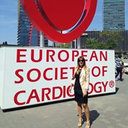The Role of Colchicine in the Prevention of Cerebrovascular Ischemia.
Nøgleord
Abstrakt
BACKGROUND
Despite the proven efficacy of anti-thrombotic, lipid-lowering, anti-hypertensive therapies and lifestyle modification changes for secondary ischemic stroke prevention, the risk of recurrent stroke, coronary events and vascular death remains substantial even for patients treated with high rates of established secondary preventive medications.
METHODS
In the present review, we summarize available literature data on the association between systemic inflammation and symptomatic atherosclerosis including recurrent cerebral ischemia. We also highlight the potential role of colchicine in the suppression of atherosclerosis-induced inflammation, plaque stabilization and thromboembolism prevention.
RESULTS
Accumulating evidence suggests that inflammation is of key importance in the pathophysiology of atherosclerotic plaque de-stabilization and thromboembolism, with inflammatory cells being involved in all stages of atherosclerosis development. Therefore, anti-inflammatory therapies targeting the atherosclerotic plaque inflammation may be important contributors in plaque stabilization and in the prevention of thromboembolic events. Colchicine is known to have multiple anti-inflammatory properties including inhibition of microtubule polymerization, leading to reduced secretion in monocyte-macrophages. Currently the randomized controlled CONVINCE trial is enrolling stroke patients to evaluate the effect of a daily low-dose of colchicine in reducing the rate of recurrent stroke and major vascular events.
CONCLUSIONS
Inflammatory pathways seem to be key mediators in the development of atherosclerotic process, atheromatous plaque destabilization and thromboembolism. Colchicine as a novel therapeutic agent could be a safe and effective inhibitor of the inflammation cascade in patients with extra- or intracranial atherosclerosis or arteriolosclerosis, resulting in reduced vascular events.




